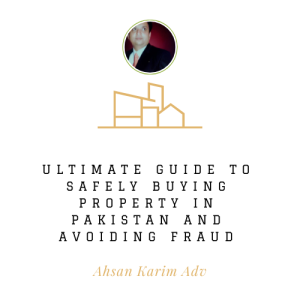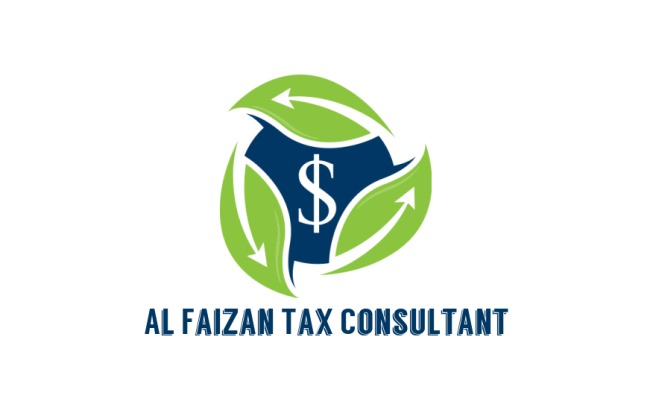A Comprehensive Guide to Avoiding Property Fraud in Pakistan
Investing in property in Pakistan can be a highly profitable venture, but it also comes with significant risks due to widespread fraud, forgery, and legal complications. Many buyers, especially overseas Pakistanis, fall victim to scams because of inadequate verification or rushed decisions. This comprehensive guide provides a detailed approach to verifying property, identifying red flags, and ensuring secure transactions. Whether you are purchasing land, a house, or a commercial space, these precautions will help you avoid costly mistakes and legal disputes.
Understanding Property Fraud in Pakistan
The real estate market in Pakistan suffers from weak regulation, corruption, and document forgery. Fraudsters exploit legal loopholes, often targeting inexperienced buyers. Some of the most common scams include:
– **Fake Ownership Documents** – Fraudsters present forged deeds or tampered land records to claim ownership of properties they do not legally own.
– **Double-Selling** – The same property is sold to multiple buyers, leaving victims entangled in legal battles.
– **Encroachment and Illegal Possession** – Occupied land is falsely advertised and sold as vacant.
– **Mortgaged Properties** – Sellers conceal bank liens, leaving buyers with unexpected financial liabilities.
– **Fraudulent Housing Societies** – Unapproved housing schemes collect payments and then disappear, leaving buyers with worthless plots.
Without proper verification, buyers risk losing their hard-earned money in lengthy and expensive legal disputes.
Ultimate Guide to Safely Buying Property in Pakistan and Avoiding Fraud

Step-by-Step Guide to Safely Buying Property
1. Verify Ownership and Legal Documents
Never rely on verbal assurances or photocopies of documents. Always demand original paperwork and cross-check with the relevant authorities.
Key Documents to Inspect:
Fard (Record of Rights)– This document confirms legal ownership and is obtained from the local Patwari or land revenue office.
Mutation Record (Intiqal)– This proves the transfer history of the property.
No Objection Certificate (NOC) – Required for properties in housing societies (verify with CDA, LDA, RDA, or other relevant authorities).
Approved Building Plans – For constructed properties, ensure the building complies with municipal regulations.
Online Verification (Where Available):
Punjab:LRMIS Punjab Land Records portal
Sindh:Board of Revenue Sindh’s online records
KPK & Balochistan:Limited online services—visit local land offices for verification.
Warning: Photocopies can be easily forged. Always insist on seeing original documents.
2. Check for Liens, Mortgages, and Legal Disputes
A property may have hidden legal issues that the seller does not disclose. Before making any payments:
Search for Mortgages– Visit the land registry or concerned bank to confirm if the property is mortgaged.
Check Court Records – Ensure there are no pending litigations or ownership disputes.
Obtain a Legal Opinion– A property lawyer can conduct a thorough title search to uncover any legal complications.
If the seller avoids providing these details, consider it a major red flag and reconsider the purchase.
3. Physically Inspect the Property
Never finalize a deal without personally visiting the property. During inspection, look for:
Encroachments– Neighbors may be illegally using part of the land.
Unauthorized Constructions – Buildings that violate zoning laws risk demolition.
Actual Possession – Ensure the seller is the legitimate occupant and not a fraudulent claimant.
For Overseas Buyers: If you cannot visit in person, hire a trusted representative to inspect the property on your behalf.
4. Avoid Fake Housing Societies
Many housing schemes operate illegally without government approval. Before investing:
Verify NOC– Check with the relevant development authority (LDA, CDA, RDA, etc.) to confirm approval.
Confirm Layout Approval – Unapproved schemes may never be developed, leaving buyers with worthless land.
Beware of Unrealistically Low Prices – If a deal seems too good to be true, it likely is a scam.
5. Secure Payment and Legal Agreements
Never Pay in Cash
1- Always use traceable payment methods such as bank transfers, pay orders, or cheques.
2- Avoid making large upfront payments before full verification is complete.
Legally Binding Sale Agreement
A poorly drafted agreement can be exploited. Ensure it includes:
1- Full property and seller details (CNIC, ownership proof).
2- Clear payment schedule and possession date.
3- Penalties for breach of contract.
4- Witnesses and lawyer’s attestation for legal validity.
6. Finalize Ownership Transfer Legally
After completing the payment, ensure the ownership transfer is legally finalized:
1. **Register the Sale Deed** at the sub-registrar’s office.
2. **Pay Stamp Duty and Taxes** (varies by province).
3. **Update Mutation Records** (Intiqal) to reflect the new ownership.
Skipping proper registration can lead to future ownership disputes.
What to Do If You Are a Victim of Fraud?
If you suspect you have been scammed, take immediate action:
1-File an FIR (First Information Report) with the police.
2- Contact the Federal Investigation Agency (FIA) or NAB if the fraud involves large sums or cyber elements.
3- Hire a Lawyer to explore legal options for recovering your money or property.
Why Hiring a Property Lawyer is Essential?
A qualified real estate lawyer can:
1- Verify all property documents and conduct title searches.
2- Draft legally secure sale agreements.
3- Handle registration and represent you in disputes.
The cost of hiring a lawyer is minimal compared to the potential losses from fraud.
Frequently Asked Questions (FAQs)
Q1: What are the most common types of property fraud in Pakistan?
A: Common scams include fake ownership documents, double-selling, encroachment, mortgaged properties sold without disclosure, and fraudulent housing societies.
Q2: How can I verify if a housing society is legitimate?
A: Check for a valid NOC and approved layout plan from the relevant development authority (LDA, CDA, RDA, etc.). Avoid societies without these approvals.
Q3: Can I trust photocopies of property documents?
A: No, always demand original documents and verify them with the issuing authority. Photocopies can be easily forged.
Q4: What should I do if the seller pressures me to pay quickly?
A: Refuse to rush. Legitimate sellers allow time for due diligence. Pressure tactics are often a sign of fraud.
Q5: Is it safe to buy property online in Pakistan?
A: It can be risky. Use trusted platforms, verify listings independently, and avoid payments until you or a trusted representative physically inspects the property.
Q6: What if I discover fraud after buying a property?
A: File an FIR with the police, report to the FIA if necessary, and consult a lawyer to explore legal remedies.
Q7: How important is a lawyer in property transactions?
A: Extremely important. A lawyer ensures legal compliance, verifies documents, and protects your interests, significantly reducing fraud risks.
Q8: Can overseas Pakistanis safely buy property remotely?
A: Yes, but extra precautions are necessary. Hire a trusted lawyer or representative in Pakistan to verify documents and inspect the property on your behalf.
Final Thoughts
Purchasing property in Pakistan requires careful due diligence to avoid scams. Always verify documents, inspect the property, use secure payment methods, and hire a lawyer for legal protection. By following these steps, you can invest safely and avoid becoming a victim of fraud.
Need Legal Assistance?*Consult a trusted property lawyer before finalizing any deal to ensure a secure & hassle-free transaction. We are always here to guide you in this regard. Use the comment box given below to contact us. Read following article too written by Ahsan Karim advocate high court.
How to Save Income Tax Legally in Pakistan? A Complete Guide

I H.Dr Ahsan Karim is an advocate high court and old Ravian. I did my LLB from Punjab University Lahore in 2002. I am working as webmaster and social media manager too in Al-Faizan Tax Consultant. I have written more than 7000 articles on various topics.
